Why Is It Important to Recycle?
We already know — reduce, reuse, recycle — but do you know why each one is important?
Updated April 17 2020, 11:10 a.m. ET
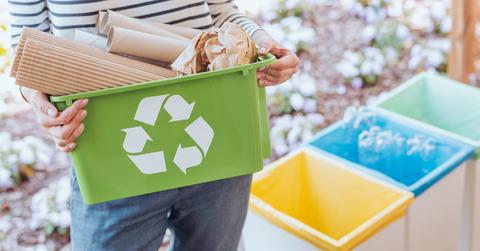
The three golden rules of sustainability we were taught as kids are reduce, reuse, and recycle. But for some reason, “recycle” was the one most highlighted. As we learn more and more about going green, it’s becoming more and more clear that recycling is actually the least important of those three totems. Sure, recycling is important, but if we reduced what we were using and reused what we were using in place of single-use options, there would be significantly less stuff in the world to recycle. And less stuff is key to — not to get too hyperbolic here but — saving the planet.
It is important to recycle, but while we may know that we’re “supposed to do it,” many of us might not understand exactly why. And let’s be honest it’s tricky, too. Different materials — even different kinds of plastics — contain numbers, called resin identification codes, that indicate how these materials should and can be recycled, meaning they need to be separated. These numbers go from one to seven and if you don’t separate them accordingly, it could mean an imperfect recycling choice.
Electronics and tech products also have their own category for recycling, which forces people to have to separate them from other recycling. And even if you recycle “correctly,” it could be all for naught. After all, items made of multiple materials or stained with food or grease often can’t be recycled.
Plus, there’s always the chance that something lightweight (and probably plastic) will blow off or jam a recycling machine. To top it all off, some plastics are completely non-recyclable.
Like we said, recycling can be tricky, but still — it’s important! Keep reading for all the benefits of recycling and why it’s essential for the planet.
Why is it important to recycle?
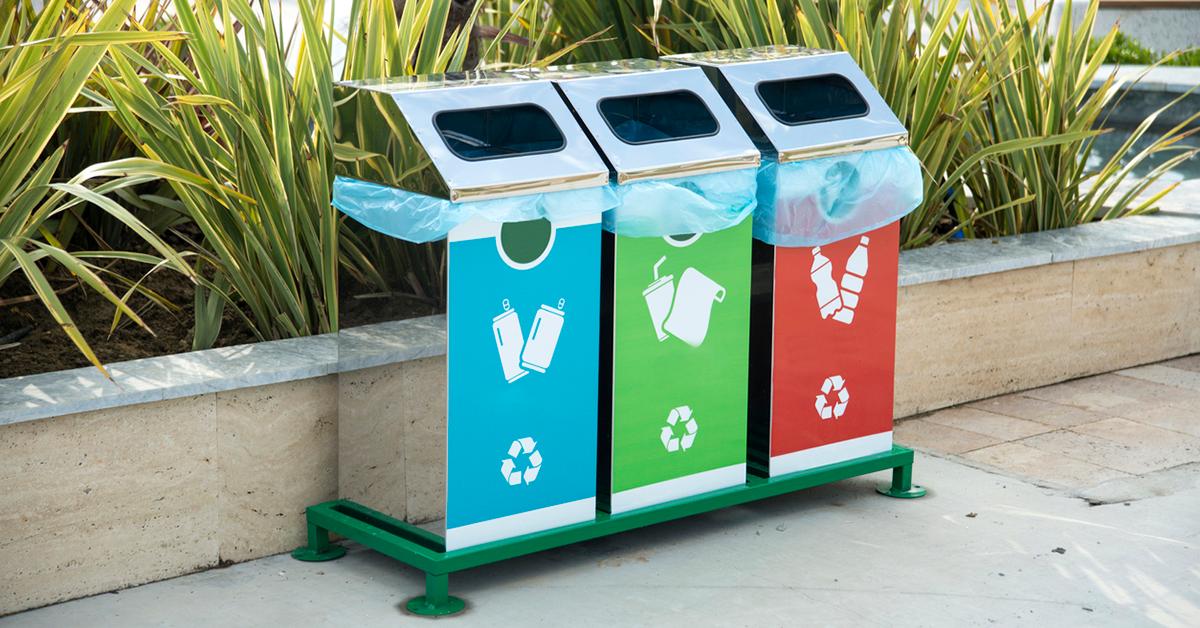
When a material is used to make something, it’s important that it breaks down organically, can be reused, or recycled into something else. Otherwise, that material only serves one purpose before it ends up in a landfill long-term where it will not break down.
If waste is not recycled, it can negatively impact our environment in many ways. Waste can emit greenhouse gases that contribute to global warming and, therefore, climate change. Non-recycled waste can contribute to air pollution, water pollution, and put animal lives and human lives at risk. Alternatively, if we recycle, we can significantly reduce the amount of pollution our waste creates, according to Recycling-Guide.com.
Recycling is also crucial because of how waste can impact animals (and consequently, humans because, you know, food chain). Waste can cause loss of natural habitats and contributes to negative impacts like climate change and global warming, which can also destroy animals’ natural habitats. When animals — and other biological organisms — lose their habitats, they can die off or starve.
Recycling also means using materials that have already been used, rather than creating new raw materials. Since raw materials often come from our most important forests, like rainforests for example, recycling can cut back on the need for raw materials. Raw materials could also include natural resources like timber, water, and minerals. When we cut back on new materials, we can preserve natural habitats, forests, rainforests, and give the Earth a chance to grow and heal.
Energy is another reason why recycling is so necessary. When we use raw materials to make new things, it requires a lot of energy. And water, too. But it requires less energy to recycle old materials into something new, according to the Environmental Protection Agency (EPA).
What are the benefits of recycling?
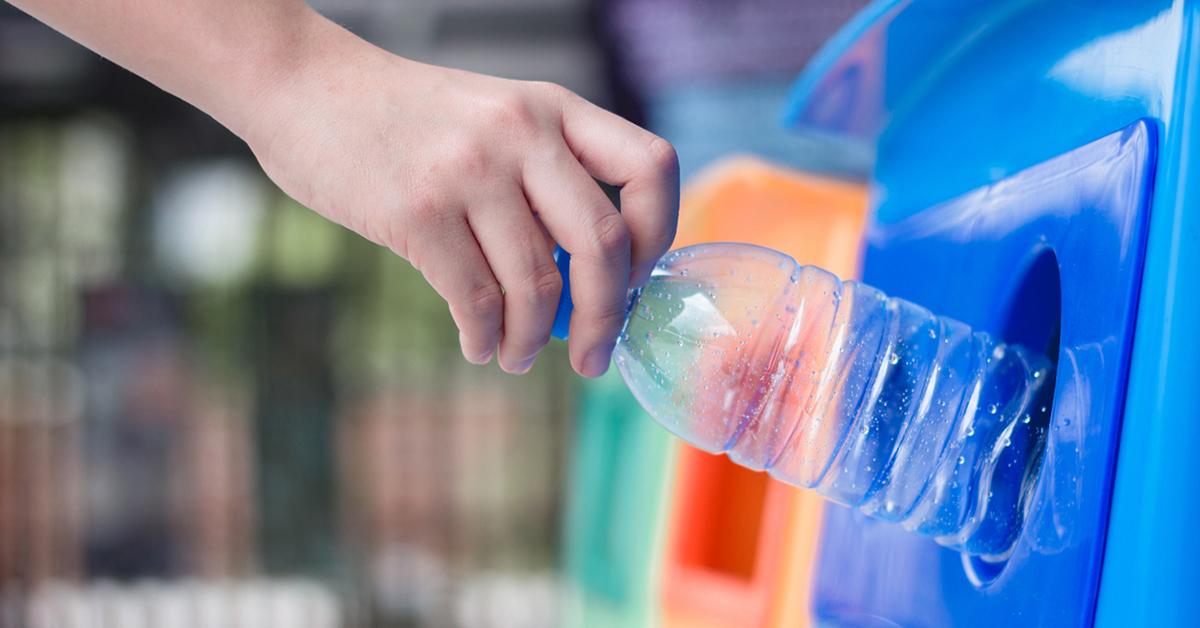
There are so many benefits of recycling, from positive environmental impacts to stimulating the economy. The EPA reports that recycling actually helps to create jobs in both the recycling and manufacturing industries in the U.S., which is crucial to American job stability and security. Apart from creating jobs, the recycling industry also stimulates the American economy, since it means relying on domestic sources of materials rather than imported ones.
Recycling also has environmental benefits such as reducing waste that gets sent to landfills and incinerators, therefore cutting back on harmful greenhouse gas emissions that contribute to climate change and global warming. It also conserves important natural resources, prevents the spread of pollution, and saves energy.
Why is it important to recycle plastic?
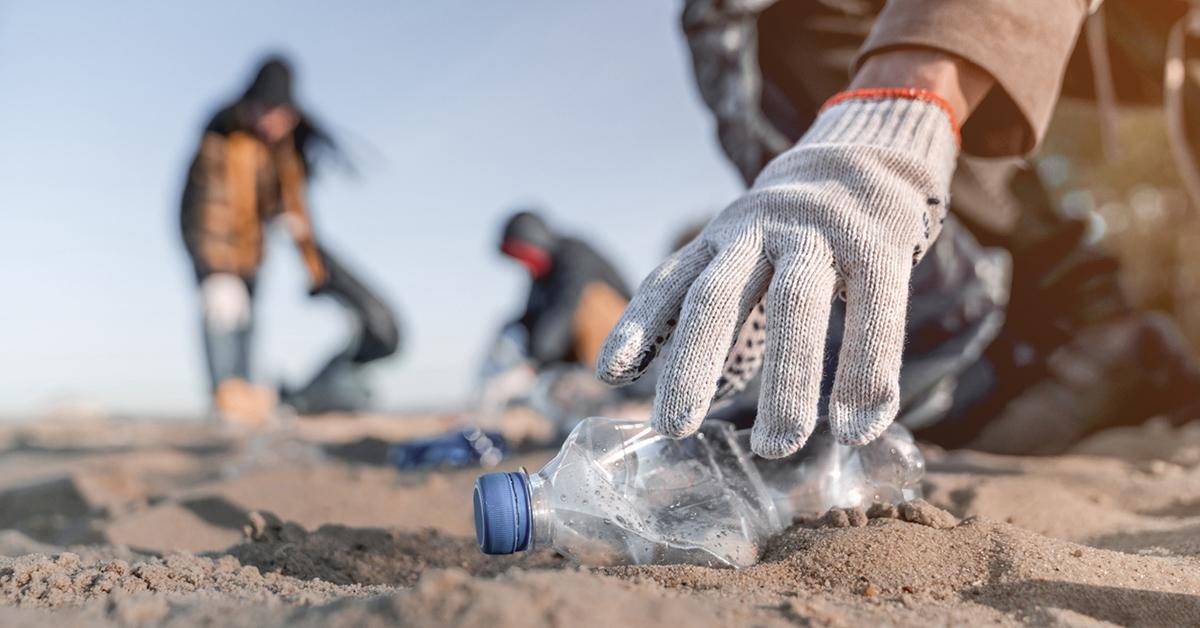
In general, it is important to recycle any materials that can be recycled, but since plastics are such a massive part of the solid waste that humans make, it is particularly critical to recycle plastic.
When plastic is sent to a landfill, it does not break down. In fact, plastic rarely breaks down organically because it is not biodegradable. Coupled with the fact that many of plastic items humans use are single-use, meaning they are only used once before they are discarded, and it’s no wonder that 4waste.com reports that 30 million tons of plastic are disposed every year.
Since plastic can take anywhere from 500 to 1,000 years to actually break down, recycling it is a better alternative. We can’t get rid of the material naturally, so we can reuse it by recycling it into something else.
Why is it important to recycle metal products?
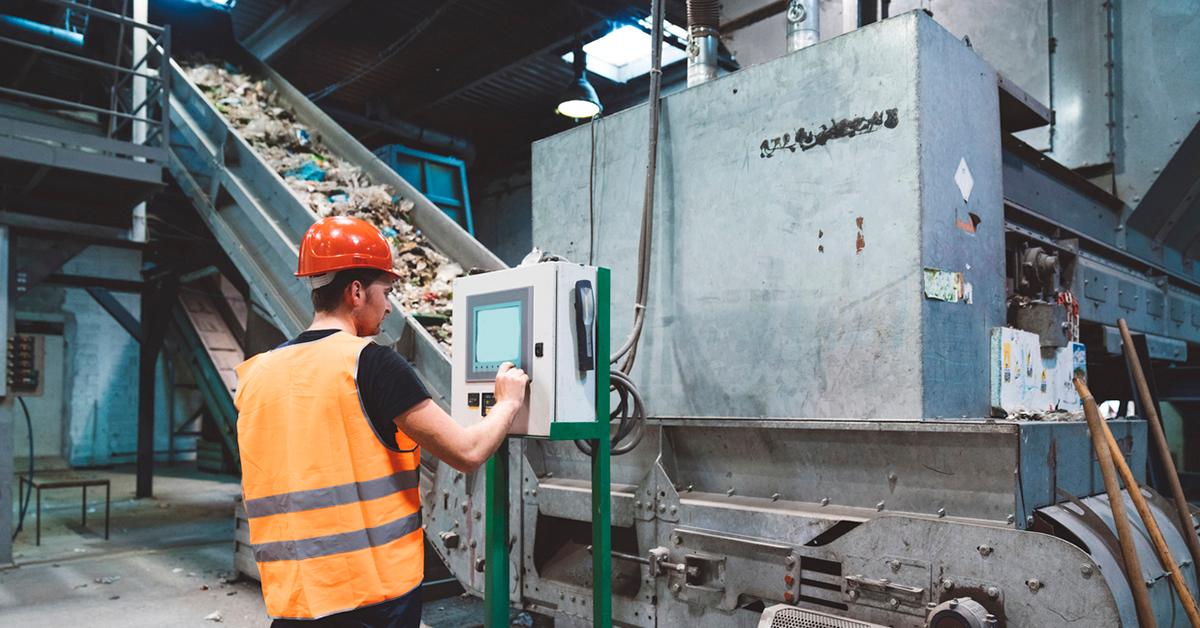
Recycling metal products saves energy, reduces greenhouse gas emissions, and creates jobs. According to the Institute of Scrap Recycling Industries (ISRI), recycling metal can cut harmful emissions that cause global warming by anywhere from 300 to 500 million tons. Using recycled metal — aka scrap metal — in place of “new” metal also reduces mining waste by 97 percent. The National Institute of Health also reports that scrap metal requires less water.
Recycling metal products also significantly cuts back on energy. By using recycled scrap metals as a material, 92 percent of energy is saved for aluminum, 90 percent for copper, and 56 percent for steel.
The metal recycling industry also helps create jobs. According to Calgary Metal, the industry is responsible for creating 36 times more jobs than sending that waste to the incinerator and six times more jobs than sending it to the landfill. Creating jobs is an important benefit, but the scrap metal industry stimulates the economy, too. The National Recycling Coalition accounts for the recycling industry generating $236 million annually.
Why is it important to recycle paper?
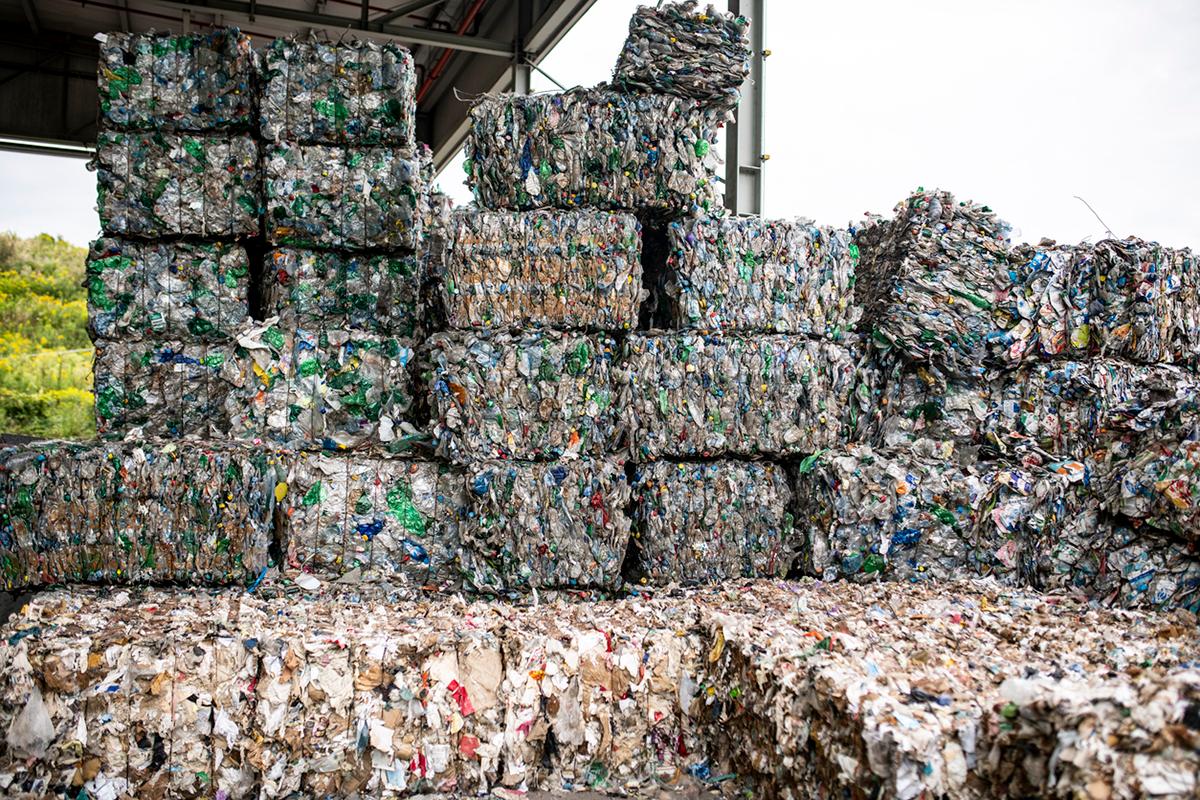
Like the recycling of most other materials, recycling paper saves energy, reduces greenhouse gases, and conserves crucial natural resources. Also, the more paper that is recycled, the less paper there is in landfills. Since paper can be recycled, it’s important to leave space in landfills for the materials that cannot be repurposed through recycling. Paper takes up space in landfills and goes to waste, since it can be recycled effectively.
According to ThoughtCo.com, one ton of recycled paper saves 17 trees and 7,000 gallons of water. It also saves energy – about 4,000 kilowatts of it, which is actually enough to power the average American home for up to six months.
Why is it important to recycle cardboard?
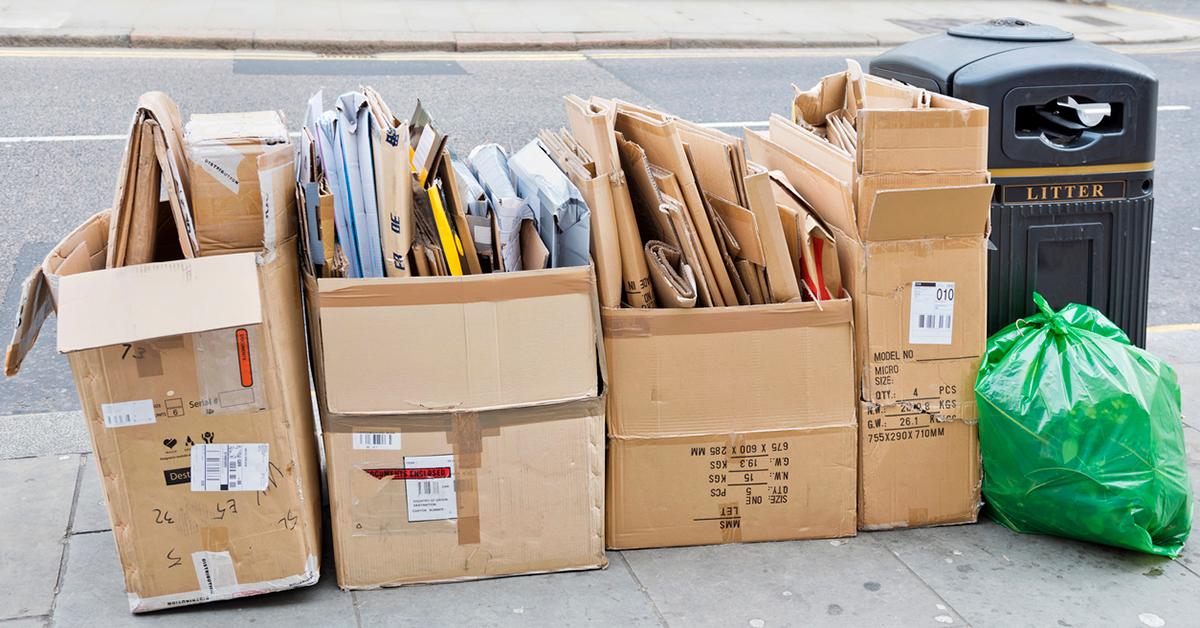
The main benefits of recycling cardboard are similar to the benefits of recycling all other recyclable materials, as well. Recycling cardboard uses less water, cuts back on emissions, saves prime real estate in landfills for materials that are not recyclable, and prevents deforestation. Like paper, Planned Packaging of Illinois Corp (PPOIC) says that recycling one ton of cardboard can save 17 trees from harm, 7,000 gallons of water, 1,500 pounds of carbon dioxide from emitting back into the environment, and reduces energy consumption by 64 percent.
In some states, like Massachusetts, for example, cardboard, paper, and non-waxed cardboard is banned from being trashed. The Massachusetts Waste Bans saves money on disposal costs, as well as has a positive effect on the environment.